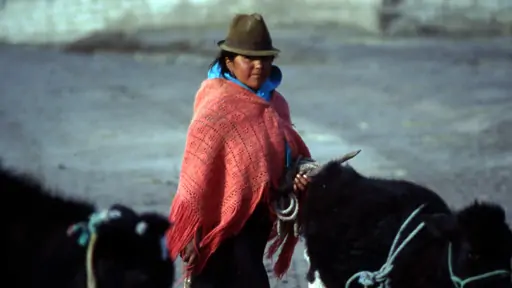Indigenous Calendar September, 2016: Michael Jackson Shares a Legacy with Emiliano Zapata

A hundred years ago, Emiliano Zapata was spending what would be the conclusion of his short life (he was assassinated in 1919) doing what he set out to do at the beginning of the Mexican Revolution. His motivation was land reform in which he advocated for the return of land stolen from the peasant class — many of whom were and still are indigenous people. He was overseeing such land return in his home state of Morelos.
He was himself half-blood Nahua (Aztec), and today he is remembered with hero status by many of Mexico's indigenous people. Most people are more familiar with his revolutionary compadre, "Pancho" Villa (I don't recall ever seeing a restaurant named after Zapata). Yet his legacy lives on in ways that are more important to Mexico's indigenous people than restaurant names. By the time of his assassination his work had already influenced the Mexican Constitution that survives to this day. It has an article (amended in 1992) that specifically addresses land reform and ownership rights.
The most widely spoken Mayan language in Mexico today is Yucatec. Almost 100 years after it was written, the Mexican Constitution was just translated into that language. This represents the most significant event in recent years that will help to preserve the language. It also marks a new addition to Zapata's legacy that he probably could never have imagined.
This month's photo was not taken in Mexico. It was taken in Ecuador. There, as in Mexico, there is a peasant class and most of the country's indigenous people fall into that class. The subject is a Quichua herder. I was spending the day in her village when she passed me with some of her livestock. Like the Yucatec people of Mexico, the Quichua have, over the centuries, had their land taken away from them by colonial forces.
An upbeat story about the Quichua from the past year involves the preservation of their language, Qechua (the most widely spoken indigenous language in the Americas today but nonetheless under threat), and a posthumous legacy. "The Way You Make Me Feel" is a song written and recorded by Michael Jackson in 1987. One of his more popular songs, it has been covered by many artists. Ecuadorian teenager Renata Flores Rivera sings it in Quechua. Her rendition currently has over 1.5 million views on YouTube. Rivera is now a performing artist in her own right, but she often releases new material online. Just a few weeks ago she published her performance of another Jackson song, "Earth Song," which she also sings in Quechua. Like Zapata, Jackson could never have imagined that helping to preserve an indigenous language would become part of his legacy.
If you enjoyed reading this article, please consider supporting independent, advertising-free journalism by buying us a coffee to help us cover the cost of hosting our web site. Please click on the link or scan the QR code. Thanks!


